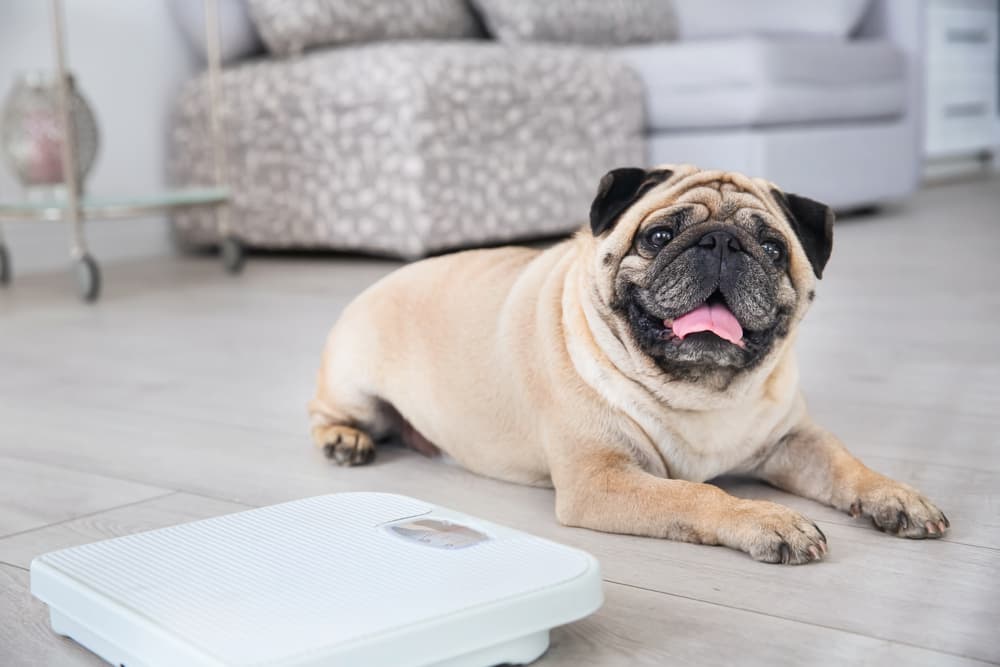Obesity is a growing problem among dogs, with an estimated 56% of them being overweight or obese in the United States alone. Just like humans, dogs can also suffer from various health issues due to excess weight, including joint problems, heart disease, and diabetes. As pet owners, it is our responsibility to ensure that our furry companions maintain a healthy weight to live a long and happy life. In this article, we will discuss the causes and consequences of dog obesity, as well as practical tips and techniques to prevent it.
Understanding Dog Obesity: Causes and Consequences

What Causes Dog Obesity?
Obesity in dogs is primarily caused by a combination of overfeeding and lack of physical activity. Pet owners who give their dogs too much food or treats without considering their breed, age, and level of activity are putting them at risk of becoming overweight or obese. Moreover, some dog breeds are more prone to weight gain than others, such as Labrador Retrievers and Beagles. It is essential to understand that just like humans, each dog has unique dietary and exercise needs, and it is our responsibility as owners to meet those needs.
Consequences of Dog Obesity
Obesity can have severe consequences for our furry friends, both physically and mentally. Dogs who are overweight or obese are at a higher risk of developing health issues such as joint problems, respiratory issues, heart disease, and diabetes. The excess weight puts a strain on their joints, making it difficult and painful for them to move around. This, in turn, can lead to a lack of physical activity, further exacerbating the issue. Moreover, obesity can also impact a dog's mental health, leading to depression, anxiety, and lethargy.
Tips and Techniques to Prevent Dog Obesity

Feed Your Dog a Balanced Diet
Just like humans, a balanced and nutritious diet is crucial for our dogs' overall health. It is essential to consult with a veterinarian to determine the appropriate amount of food for your dog based on their breed, age, and activity level. Avoid feeding them table scraps or excessive treats, as they are high in calories and can contribute to weight gain. Instead, opt for healthier options such as fruits and vegetables or low-fat dog treats. Also, make sure to read labels and choose high-quality dog food that is specifically formulated for your dog's needs.
Monitor Portion Sizes
It is not enough to feed your dog a balanced diet; you also need to monitor their portion sizes. Overfeeding, even with healthy food, can still lead to weight gain. Measuring out your dog's food according to their specific dietary needs is crucial in preventing obesity. Moreover, avoid free-feeding, which means leaving food out all day for your dog to eat whenever they want. This can lead to overeating and weight gain. Stick to a regular feeding schedule, and if you have any concerns about your dog's weight, consult with a veterinarian.
Exercise Your Dog Regularly
Physical activity is just as important for dogs as it is for humans. Regular exercise can help maintain a healthy weight, improve muscle strength and cardiovascular health, and provide mental stimulation for our furry friends. The amount of exercise needed varies depending on the breed, age, and health condition of your dog. Active breeds may require more frequent and intense exercise, while senior dogs with joint issues may benefit from low-impact activities such as swimming. Be sure to consult with your veterinarian before starting any exercise regimen for your dog.
Fun Activities to Keep Your Dog Active
- Regular walks or jogs
- Fetch or playing with toys
- Swimming
- Hiking
- Agility training or obstacle courses
Signs That Your Dog Needs More Exercise
- Excessive weight gain
- Lethargy or lack of interest in physical activities
- Destructive behavior or excess energy
- Joint problems
Keep Track of Your Dog's Weight
Regularly monitoring your dog's weight can help you identify any changes and address them promptly. A healthy weight for a dog varies depending on their breed, age, and size. Consult with your veterinarian to determine the ideal weight for your dog, and weigh them regularly to make sure they are within this range. If you notice any significant weight changes, it is essential to consult with your veterinarian to rule out any underlying health issues.
FAQs about Preventing Dog Obesity

What is the most common cause of dog obesity?
As mentioned before, the most common cause of dog obesity is overfeeding and lack of physical activity. Pet owners who do not monitor their dog's food intake and do not provide enough exercise are putting their dogs at risk of becoming overweight or obese.
What are some signs that my dog may be overweight or obese?
Some signs that your dog may be overweight or obese include difficulty breathing, lethargy, reluctance to exercise, and difficulty getting up or lying down. You may also notice that your dog's ribs are not easily felt or visible due to excess fat.
Can I still give my dog treats while trying to prevent obesity?
Yes, but it is essential to choose low-calorie and healthy treats and limit their intake. Too many treats, even the healthy ones, can contribute to weight gain.
Will neutering or spaying my dog cause obesity?
Neutering or spaying alone does not directly cause obesity, but it may lead to a decrease in metabolism, making it easier for dogs to gain weight. It is crucial to adjust your dog's diet and exercise accordingly after the procedure.
What should I do if my dog is already overweight or obese?
If your dog is already overweight or obese, it is crucial to consult with your veterinarian to develop a weight loss plan for them. This may include adjusting their diet, increasing their exercise, and monitoring their progress closely.
Conclusion

Preventing obesity in dogs requires a combination of proper nutrition, portion control, regular exercise, and monitoring. As pet owners, we must understand our dog's unique needs and take the necessary steps to keep them healthy and at a healthy weight. By following the tips and techniques mentioned above, you can help prevent obesity in your furry friend and ensure they live a long and happy life. Remember, a healthy dog is a happy dog.



